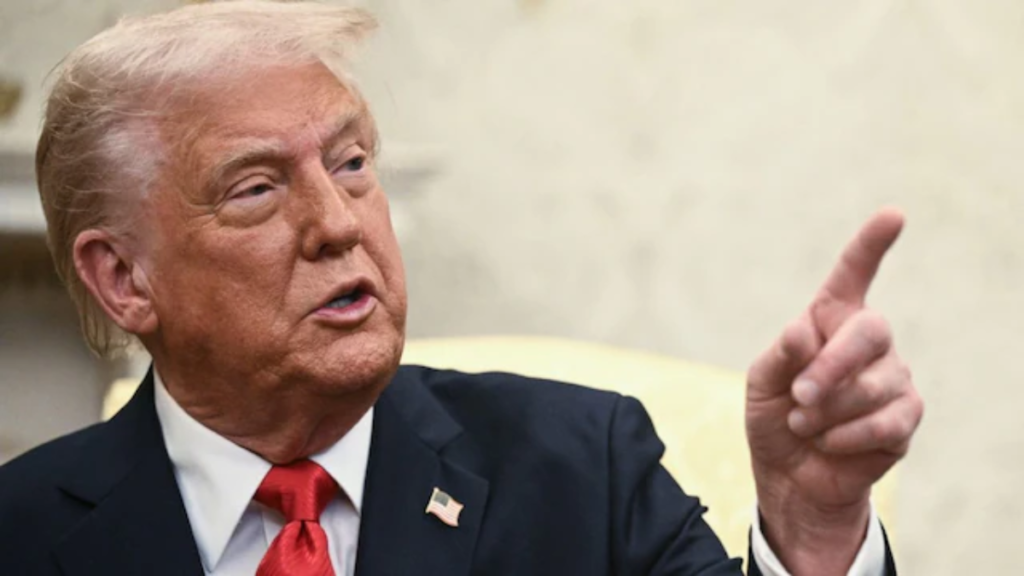United States immigration officials have reversed their contentious ruling to end the legal status of thousands of foreign students, in response to growing legal complaints brought in courts nationwide. The turnaround was officially declared in a court hearing in Boston, providing relief to students whose studies and immigration status were put at risk by abrupt removals from the government’s SEVIS databas
In a breakthrough, a federal judge presiding over one of the cases in Boston was told that the United States Immigration and Customs Enforcement (ICE) agency would start restoring student records that were deleted inappropriately. The news marks a wider change in the United States‘ management of foreign students following an increasing wave of criticism and judicial oversight.
In the last few weeks, students at several United States universities found that their SEVIS (Student and Exchange Visitor Information System) records had been unilaterally closed. SEVIS is the federal database operated by ICE to track international students’ compliance with visa regulations. In most instances, neither students nor university officials received advance notice, resulting in broad confusion and fear of deportation.
Yet, various federal judges acting in response to emergency lawsuits provided temporary injunctions ordering the United States government to reestablish the impeded SEVIS records. Judges in Boston, Oakland, and Washington took resolute action safeguarding students’ rights in consideration of a detailed examination of the actions taken by ICE. The terminations lacked due process as well as infringed on administrative fairness, alleged legal advocates.
In an Oakland courtroom, a lawyer for the United States government read an prepared statement in which they were admitting that ICE was taking “affirmative steps” to manually recreate SEVIS records on all students that were affected by the deletions. Lawyer Brian Green, on behalf of one set of students affected, went on to affirm that similar statements had been read in continuing litigation in other venues, including Washington.
Green quoted a written statement from a United States government lawyer, which stated: “ICE is working on a policy that will give guidance on SEVIS record closings.”. Until the issuance of such a policy, plaintiff(s) in the present case (and similarly situated plaintiffs) will have their SEVIS records remain Active or be re-activated if not already active, and ICE will not update the record based on the sole finding of NCIC that led to the recent termination of the SEVIS record.
This promise, Green said, would hold in a general sense for all international students with similar concerns—not only those defendants in lawsuits. The United States government’s move to widely reinstate SEVIS records is a significant backtracking from its previous tough enforcement stance.
The problem started with checks performed via the National Crime Information Center (NCIC), which is managed by the FBI. Apparently, such checks prompted the mass cancellation of SEVIS records. The United States immigration agencies marked students allegedly on the basis of results from NCIC databases, which frequently relate to criminal records. However, in most situations, students had no criminal record and no apparent reasons were given for their unexpected visa issues.
Universities throughout the United States were caught off guard by the developments. Routine administrative verifications turned up the fact that the legal statuses of their enrolled international students had been removed, sending students into a panic mode of possibly losing their education and having to depart from the country.

United States: In what ways did ICE’s actions toward SEVIS records jeopardize the nation’s international reputation as a premier destination for international education?
Experts contend that the fiasco greatly hurt the United States‘ reputation among potential foreign students. Immigration lawyers and education advocates emphasized that sudden visa cancellations without proper notice or reasonable explanation would erode confidence in the United States as a trustworthy educational destination. Furthermore, universities were concerned that diminishing confidence among foreign applicants would result in long-term enrollment and diversity losses.
Some universities and higher-education associations were critical of the first move by the United States government as irresponsible and inept. They pointed out that international students bring life not just to campus academic atmosphere but also to the United States economy, paying billions of tuition fees, living costs, and cultural exchange dividends.
The Biden administration, inheriting several Trump-era restrictive immigration policies, has been under pressure to tidy up these leftover measures. Pressure groups argue that the United States needs to establish a better and more just system for maintaining and canceling SEVIS records. Otherwise, they contend, the United States could lose out to other nations like Canada, the United Kingdom, or Australia in attracting talented students.
Although the manual re-activation of student records provides an instant relief, it is still an ad-hoc measure. Legal professionals opine that only a transparent and exhaustive policy revamp will bring about complete confidence among international students and universities in the United States system.
Until recently, ICE’s announcement has granted a temporary respite. Those students whose SEVIS records were erased are now being contacted and having their records manually restored. But many continue to wait for official word and remain apprehensive about the eventual resolution of their status.
University administrators throughout the United States are in close consultation with the affected students to ensure conformity and to provide assistance services. They have also vowed to persist in advocating for increased accountability and fairness in immigration laws that affect their international student populations.
As the United States seeks to maintain its position as a world leader in higher education, the resolution of this SEVIS crisis will be a significant test of the government’s commitment to fairness, transparency, and global engagement.
ALSO READ
TRUMP ADMINISTRATION Cracks Down: Columbia Risks $400M for Policy Lapses